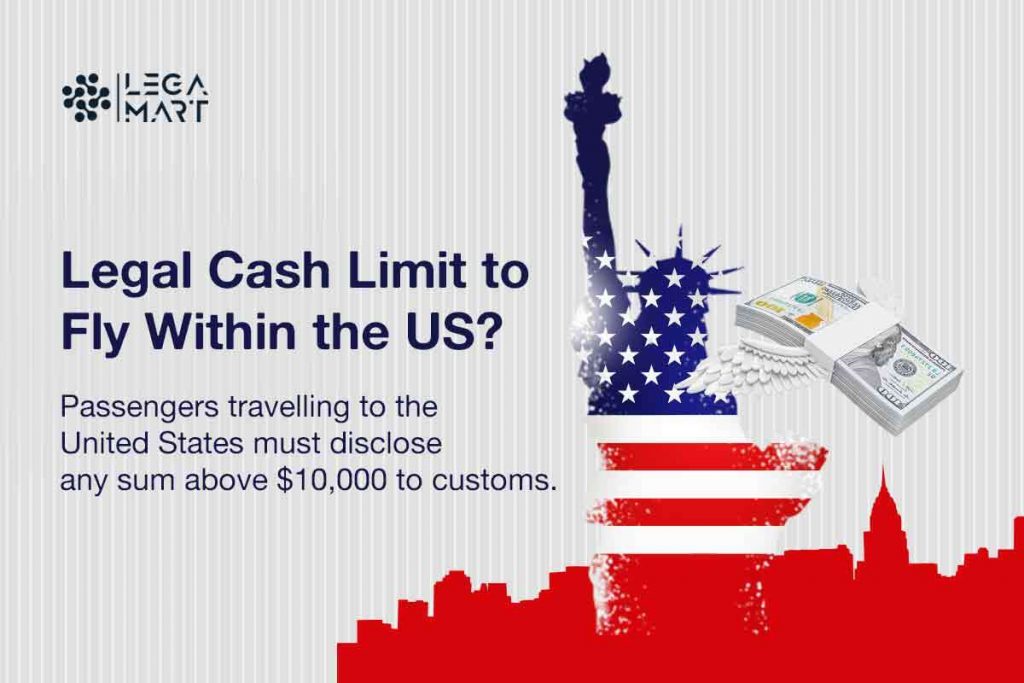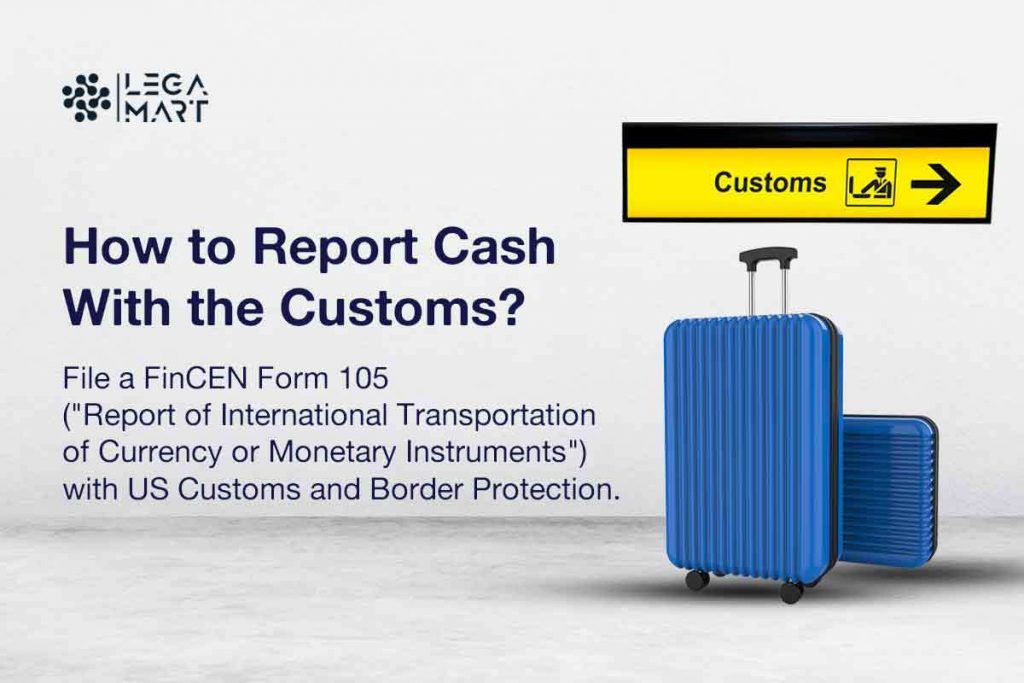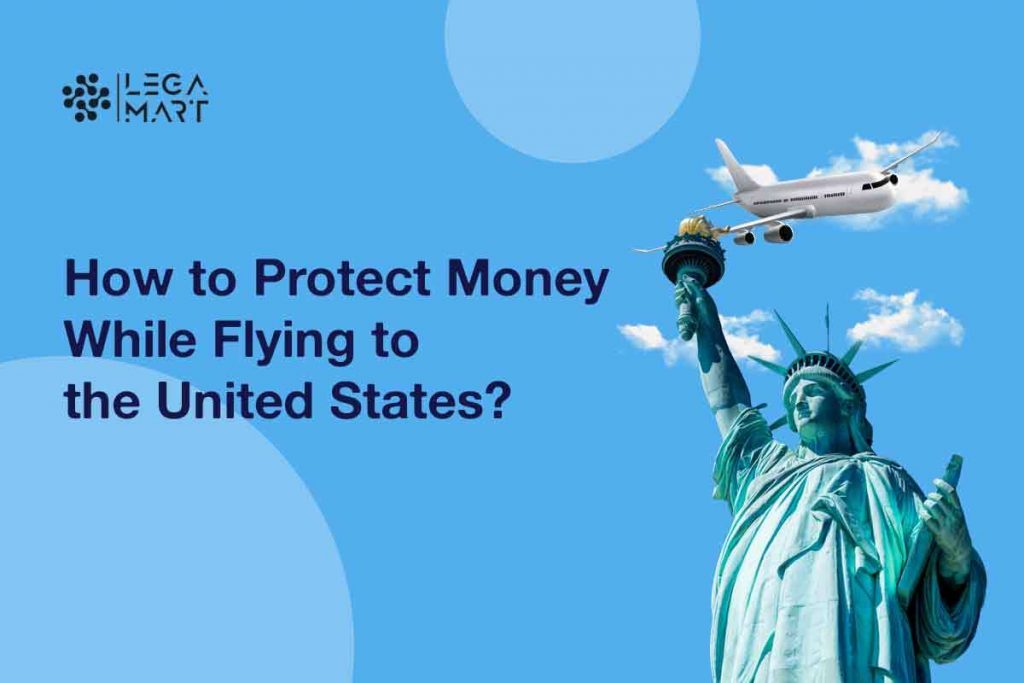If you are travelling with a significant sum of cash or other monetary instruments such as traveller’s checks, money orders, and bearer bonds, you should take precautions to avoid unwanted attention, but you should also be aware of any legal difficulties that may arise. What you need to do will depend on where you are in the country or whether you are travelling overseas. In this article, you will find detailed guidance about how much cash can you legally fly to the US.
You are welcome to get in touch with our lawyers located at LegaMart. They can offer you comprehensive guidance in this matter. With their legal advice and practical assistance, you will be able to avoid any unnecessary checking. For further assistance regarding how much cash can you legally fly to the US, keep reading this article.
Transport security administration
The Transportation Security Administration is a Department of Homeland Security (DHS) department responsible for the security of transportation networks inside and adjacent to the United States. The Transportation Security Administration creates comprehensive policies to defend the United States transportation infrastructure, which includes highways, trains, buses, public transit systems, ports, pipelines, and intermodal freight facilities. This mission is carried out in collaboration with other federal agencies and state partners.
However, the TSA’s major objective is airport security and preventing aeroplane hijacking. It is in charge of screening people and their baggage at more than 450 airports in the United States, employing screening personnel in airports, armed Federal Air Marshals aircraft, mobile dog handler teams, and explosives specialists. Identification requirements, pat-downs, full-body scanners, electronic device limits, and explosives screening are all part of the TSA’s screening methods and rules for passengers and carry-on luggage.
Cash can you legally fly to the US

If you have an impending flight, you may wonder how much money you can bring on board. It is dependent on whether you are travelling domestically or overseas. There is no restriction on how much money you can bring on an aircraft if you travel to the United States. If you travel abroad to the United States, you must disclose any sum above $10,000 to customs. However, there are a few other things you should be aware of, such as how the regulations on how much money you may take on an aircraft differ by nation, the cash limit per family, what happens if you fail to disclose any amount above $10,000, and whether your money can be seized.
If you need comprehensive details in this matter, our seasoned attorneys at LegaMart can guide you. There is no restriction to the quantity of cash or monetary instruments you can take on a domestic aircraft in the United States. However, the TSA may ask a traveller carrying a large amount of cash to account for the money. If the TSA finds that the money is linked to illicit activities such as drug trafficking or money laundering, they may refer the case to a law enforcement agency. However, you should know that TSA has no law enforcement powers.
As previously stated, there is no restriction to how much money you may bring on an aircraft when travelling to the United States. This does not imply that you will go through airport security without questions. Travelling with big sums of money will undoubtedly raise concerns about how this money will be accounted for. You are welcome to consult with our lawyers regarding how to deal with these questions and prove the legitimacy of your cash.
Legal cash limit to fly out of the US
There are no restrictions on how much money a traveller can carry on an international aircraft departing or arriving in the United States. Passengers carrying money-signed personal checks, traveller checks, gold coins, securities, or stocks in bearer form valued at $10,000 or more must notify the amount to US customs agents. Failure to do so may result in penalties or money seizure. Individual travellers and those travelling as part of a family or other group are required to report.
Legal cash limit to fly within the US
If you are taking a domestic flight within the US, there is no limit on the amount of cash you can carry. However, if you carry a large amount of money, the TSA may ask you to account for the same. If the money is suspected to be used for illegal activities such as drug trafficking or money laundering, they may submit the issue to the law enforcement agency since TSA itself doesn’t hold any enforcement powers.
What counts as cash?
Unlike popular opinion, banknotes and coins are not the only forms of cash but rather a part of the various other types of cash. Anything capable of being reasonably used to purchase something comes within the ambit of cash. This is inclusive of the following:
- Coins and banknotes, both foreign and domestic
- Gold coins (Although bullions are not counted towards the US customs cash limit, however, they still need to be declared)
- Traveller’s check
- Money orders
- Checks (personal, cashiers, or business)
- Securities or stocks in bearer form
- Checks or money orders which are made out to someone other than the bearer that is endorsed without restrictions (for deposit only)
- Incomplete checks, promissory notes, and money orders, which are signed but do not have the name of the payee.
If you travel with the above combination, you are expected to declare them. Therefore, if you have $5000 in banknotes and $6000 in checks, you are expected to declare the complete $11,000 amount. This declaration is not exempt even if you have split the amount with your travel partner. Therefore, if you are carrying $5000 and your travel partner is carrying $6000, you are expected to declare the complete $11,000 in a joint declaration.
How to report cash with the customs?

Transporting any sum of dollars or other monetary instruments into or out of the United States is lawful. However, if you transport, attempt to transport, or cause to be transported (including by mail or other means) currency or other monetary instruments totalling $10,000 (or its foreign equivalent) from the United States to any foreign country or into the United States from any foreign country, you must file a FinCEN Form 105 (“Report of International Transportation of Currency or Monetary Instruments”) with US Customs and Border Protection.
The term “Border Protection” refers to obtaining permission to file a document. International visitors entering the United States must disclose money or monetary instruments worth more than $10,000 on their Customs Declaration Form (CBP Form 6059B) and complete a FinCEN Form 105.
Members of a family dwelling in the same home who enter the United States on a joint or family declaration must report on their Customs Declaration Form if they carry money or monetary instruments totalling more than $10,000. Individual members carrying more than $10,000 must then complete a Members FinCEN Form 105. Family members who live in the same home and file a joint or family declaration are forbidden from inducing others in the group to carry cash or monetary instruments on their behalf, such that no person carries more than $10,000.
International travellers leaving the United States with more than $10,000 in money or monetary instruments must complete a FinCEN Form 105 before departure. In case you need any additional information regarding filing with customs, our lawyers would be happy to help. The expert services of our lawyers are at your disposal. They can also guide you about the cash you can legally fly to and from Great Britain and Europe.
How to protect money while flying to the United States?

When flying within or to the USA with large sums of money, you must take precautions. For instance:
First of all, avoid travelling with significant sums of money;
If a TSA agent or other responsible authority inquires about the quantity of money in your luggage, tell the truth;
If you believe you have been a victim of theft, call an airport police officer or any law enforcement official immediately (note that TSA agents are not law enforcement agents).
Get in touch with our specialized lawyers if you need more details regarding how you can protect your money while travelling to or from the USA.
Penalties and seizure of money by customs
When visiting foreign nations, it is critical to understand how local customs and regulations may impact visitors. This is critical in various ways, but it is also required if any of these worries may have a detrimental impact on the individual. If some objects are not authorized to leave, enter, or exceed a specific weight, the visitor should be aware of this before attempting to do so. When it comes to money, only a certain amount is usually allowed on the person at the border or when entering the nation. If the person or group arrives by plane, customs authorities may keep the passengers until the situation is settled in their favor.
Most localities in the United States have a $10,000 per person restriction. However, if numerous people are travelling together, they are not allowed to have more than this amount without disclosing the cash or things that total more than this amount to customs. This includes couples, family members, people in a relationship, and even strangers if they are travelling together. If the customs officials are not alerted that more than $10,000 is in possession, the money may be taken away or fines imposed.
In addition, those travelling and bringing in cash or things worth monetary equivalent must complete a Report of International Transportation of Currency or Monetary Instruments. This may be obtained on the website of the United States Customs and Border Protection department, but it is also available in physical form. Before entering the nation legally, an officer must present it to the same agency.
The Customs and Border Protection Agency does not charge fees for money carried into the United States. The individual or couple submits the completed form to the Internal Revenue Service. This may subject the individual to income taxes, reducing their money. Custom authorities may seize the funds when money or instruments are not declared, and the quantity meets or exceeds the $10,000 limit.
When money or an item is not reported as necessary, it typically results in a fine of some kind, as well as possible criminal consequences. It is critical to get legal counsel from a lawyer who is familiar with the customs process and can explain why the authorities took the objects or currencies. Contact our expert lawyers at LegaMart if you are facing any such problems.
Can the TSA seize cash?
When you bring a large amount of cash to the airport, TSA screener can discover the cash at the airport’s security checkpoint. What happens, then? Does the TSA have the authority to seize the cash? – The answer is NO. The TSA can’t confiscate cash from a traveller at the airport.
However, it is still possible for the TSA screener to illegally detain a traveller until a law enforcement officer arrives. In recent years, TSA and law enforcement officers have found creative ways to conclude the seizure of cash from travellers for civil asset forfeiture proceedings.
Therefore, even when the TSA doesn’t have the authority to seize the cash, the TSA screener can provide a ‘secret tip’ to law enforcement officers, who can then detain the traveller before they are allowed to board the plane. The secret message is usually sent in the following form:
“A traveller named ______ just passed through a TSA checkpoint. The scanner detected a large sum of U.S. Currency, estimated to be in excess of $10,000, in a carry-on bag.
The passenger can be described as ______. The carry-on bag can be described as _________.
The traveller is now headed to Gate Number __ in Terminal Number __ for a domestic flight number ___ departing at _____ a.m./p.m.”
However, it is important to note that the officer requires “free and voluntary” consent to detain the traveller and conduct the search. Therefore, a traveller doesn’t need to stop, answer questions, or consent to searches by the enforcement officer. Without giving “free and voluntary consent,” the officer typically has no legal basis to search the traveller to find and seize the money.
Additionally, the officer requires ‘probable cause’ to conduct investigations based on circumstantial evidence proving that the cash relates to drug trafficking or money laundering. Therefore, when you refuse to divulge information or give consent, it becomes more difficult for the enforcement officers to develop a ‘probable cause’ and seize cash. Even with the establishment of a ‘probable cause’, these types of searches cannot occur without a proper warrant, considering the constraints under the Fourth Amendment of the United States Constitution.
What should you do if the TSA stops you because of the cash?
For a domestic flight, you are not required to disclose the amount of money you carry. However, your attorney can suggest the following 2 ways:
First, you can go forward with a minimalist approach and assert your constitutional rights in the following manner:
- If you are questioned by the TSA or the law enforcement officer related to the cash, say: “I do not answer questions.”
- If you are asked further questions, remain silent or restate the previous statement.
- If you are asked to provide identification, say: “No, thank you. I do not wish to speak with you anymore.”
- If you are asked to search you or your luggage after passing through the TSA checkpoint, say: “I do not consent to searches. Am I free to leave now?”
- Remember that all this might be recorded in their surveillance, and the officers might try to use it against you. Therefore, the following things must be kept in mind:
- Your body language should convey that you do not consent to the search and wish to end the encounter. This can be done by shaking your head in no, pointing at your wristwatch, and indicating the direction that you wish to go. Or you can start walking in that direction and see if the law enforcement officer stops you.
- If your money is seized despite all this, ask for a receipt without arguing with the person who seized the money.
- If you are refused a receipt, communicate the same to your attorney, and the attorney will figure out how to get a copy of the receipt.
- Remember the time and location of the detention to help your attorney obtain video surveillance of the encounter.
- Keep your boarding pass safely since it has the required information related to the boarding gate and other helpful information.
The other way is to waive your rights and cooperate with the investigation. This can be done in the following manner:
- Answer the questions asked by the enforcement officer on a free and voluntary basis.
- Give consent to search for you and your luggage.
- Provide access to your cell phone and your private information.
- Provide whatever is being asked by the officer.
If the officer develops probable cause that the money was involved in a drug crime or money laundering, the evidence gathered can be used against you to justify the seizure. Such a situation is avoided when you decide to remain silent instead.
Frequently Asked Questions
How to pack money for international travel?
According to the US Customs and Border Protection’s Twitter page, travellers can seek advice from their airlines on safely packing money for international travel. Generally, it is recommended that travellers place money in their carry bag and secure it with a TSA-approved lock.
Where can you obtain the FinCEN Form 105?
The form can be downloaded from the US Customs and Border Protection website or obtained from the US Customs and Border Protection officer. Prefer completing the form before the trip so that it can be presented upon arrival in the United States.
Here is an interesting read “Ways to immigrate to Norway from Turkey” which you can dive upon in an unrelated but captivating topic.




